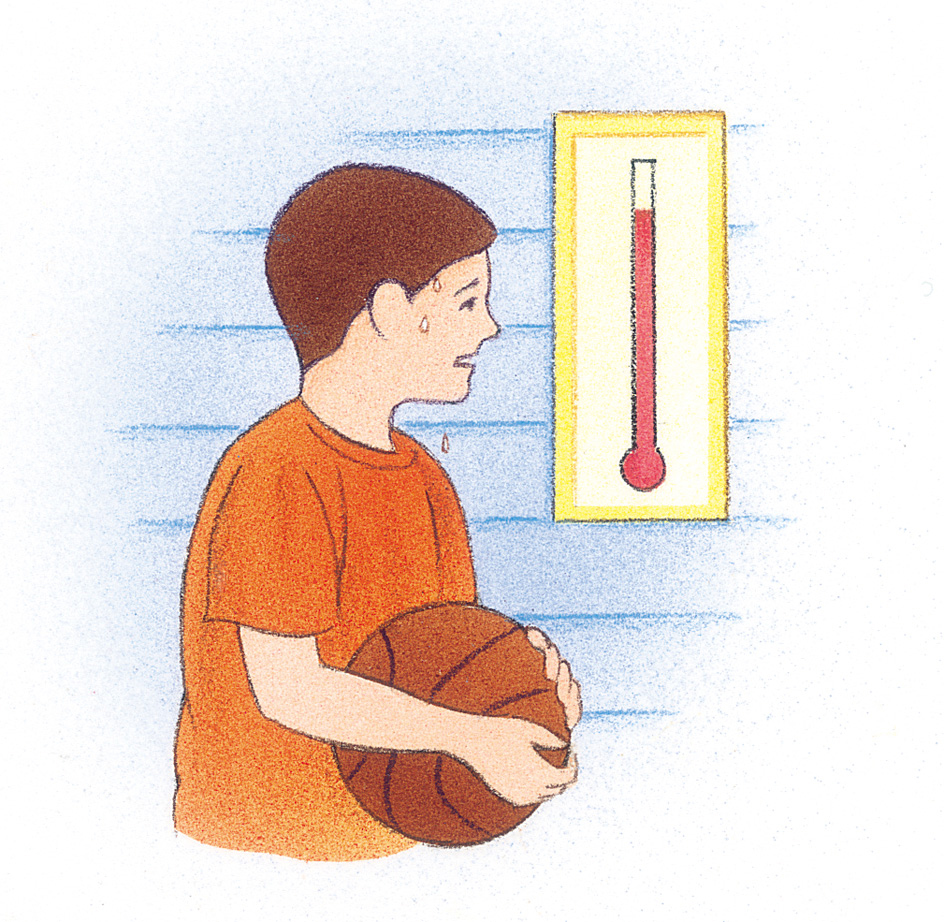Perspiration, << `pur` spuh RAY shuhn, >> also called sweat, is a fluid made by sweat glands in the skin of mammals. It consists of water and dissolved substances, including salts and urea. Sweat glands are distributed over the entire surface of the body. They are larger and more concentrated in some areas. For example, there are many large sweat glands in the armpits, on the palms of the hands, and on the soles of the feet. The main job of the sweat glands is to produce perspiration when the body needs to lose heat. Sweating itself does not reduce body heat. But when sweat evaporates, it has a cooling effect. See Evaporation ; Temperature, Body .

People perspire at all hours, in cool weather as well as in warm. When the temperature is cool, the small amount of sweat produced evaporates quickly. Scientists call this type of sweat insensible perspiration. In warm weather, or during strenuous exercise, the sweat glands increase their production. Drops of water may accumulate on the skin. This is called sensible perspiration. The amount of water lost by the body through sweat varies widely. It depends on the temperature and the person’s level of activity.
The hypothalamus, part of the brain’s body-regulating center, keeps body temperature constant. It receives impulses from the blood and from heat receptors in the skin. It sends signals to nerves in the sweat glands, regulating the production of sweat. Nervous tension and excitement also activate sweat glands, especially in the palms and armpits. Sweat is actually odorless. But bacteria that live off perspiration on the body can create a strong or unpleasant smell.
Most animals do not cool themselves in the way that humans do. For example, dogs have some sweat glands, but they are not important in cooling the body. Healthy dogs rarely perspire. Instead, dogs cool themselves by panting, in which water from the mouth is evaporated.
Excess sweat production is called hyperhidrosis. It can be reduced by applying skin products that contain aluminum chloride. Physicians may also treat hyperhidrosis by injecting a protein called botulinum toxin into the skin. This treatment temporarily reduces signals from nerves to sweat glands.
